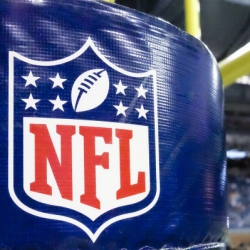The NFL, NCAA, and other major American sports associations fied a motion on Monday to stop New Jersey from offering sports betting this weekend. Last Friday, Governor Chris Christie signed legislation meant to repeal its ban on sports betting. The signing cleared the way for casinos like Borgata and racetracks like Monmouth Park to operate sportsbooks in the state.
Under the new policies instituted by the New Jersey Department of Justice and the Division of Gaming Enforcement, all licensed casinos and racetracks in the state will be able to accept sports bets. The gaming venues had planned to start accepting wagers as soon as this next weekend.
NJ Is Violating the PASPA Laws, Says NFL
The motion filed by the NFL, NBA, MLB, NHL, and college sports association states that New Jersey is in violation of the Professional and Amateur Sports Protection Act, a 1992 which confined legal sports betting to four states: Nevada, Delaware, Oregon, and Montana. The leagues’ lawyers say the limitation of sports betting to casinos and racetracks in the state is in violation of the PASPA law.
The paperwork filed by the sports associations suggests that New Jersey is attempting to do through more clever means which it sought to do explicitly three years ago. In 2011, the state legislature passed a law to allow sports betting in the state. This led to legal battles from 2012 to 2014, which New Jersey ultimately lost. U.S. District Judge Michael Shipp ruled that New Jersey could not pass laws to contradict the PASPA, but it could look the other way as the gaming venues in the states allows sports betting.
Breaking the Law through Selective Enforcement
That is what New Jersey is seeking to do right now, though the sports leagues suggest that New Jersey is breaking the law by picking-and-choosing which operators can break the PASPA law.
By choosing to allow Borgata or Monmouth Park to operate a sportsbook, but also prosecuting bookies who do the same thing, the state is tacitly enforcing a law which isn’t on the books. The filing by the NFL and its fellow leagues stated New Jersey’s current policies are “in clear and flagrant violation of federal law–to accomplish what it unsuccessfully attempted to do three years ago: sponsor, operate, advertise, promote, license or authorize gambling on amateur and professional sports at state-licensed casinos and horse racetracks. Because this effort is no more lawful than New Jersey’s past ones, it, too, should be enjoined.”
Tuesday Meeting Postponed
Dennis Drazin of Monmouth Park told ESPN that a Tuesday meeting with the judge overseeing the case has been cancelled. The same judge postponed a hearing last week in order to allow both sides to file other motions, so presumably the cancellation is meant to allow New Jersey to respond to the latest motion.
New Jersey State Senator Raymond Lesniak said on Monday that it is within a state’s right, using police powers, to determine where an activity can take place. Under that interpretation of the law, New Jersey would have the right to decide when and where gamblers can make sports bets.
Irreparable Harm
For the plaintiffs in the current suit to be successful, they will have to prove to the judge that sports gambling at Monmouth Park and other locations would cause “irreparable harm” to their product.
That could be a high bar, because judges in the past have found “no threat of immediate irreparable injury to the NFL” from sports bets being placed. That was the ruling by U.S. District Judge Walter K. Stapleton in 1976, when the NFL filed a motion against Delaware running a lottery based on the outcome of pro football games.
Wider Concerns over Enforcement
The reason the leagues are concerned may not necessarily be about New Jersey, so much as the wider precedent. If New Jersey gambling operations can take sports bets, then the 45 other states banned from doing so under the PASPA could use the same enforcement techniques (or lack thereof) to allow sports gambling in their states. Under those circumstances, professional sports contests would have uncontrolled gambling taking place throughout the year.
New Jersey has its own concerns. State leaders like Raymond Lesniak says sports betting will be a lifeline for struggling casino operations in Atlantic City, bringing in much-needed revenue. Lesniak believes the challenge to PASPA is good, and he also believes it will work. He posted yesterday on his Twitter feed: ““Need help. Whom should I bet on next Sunday?”

